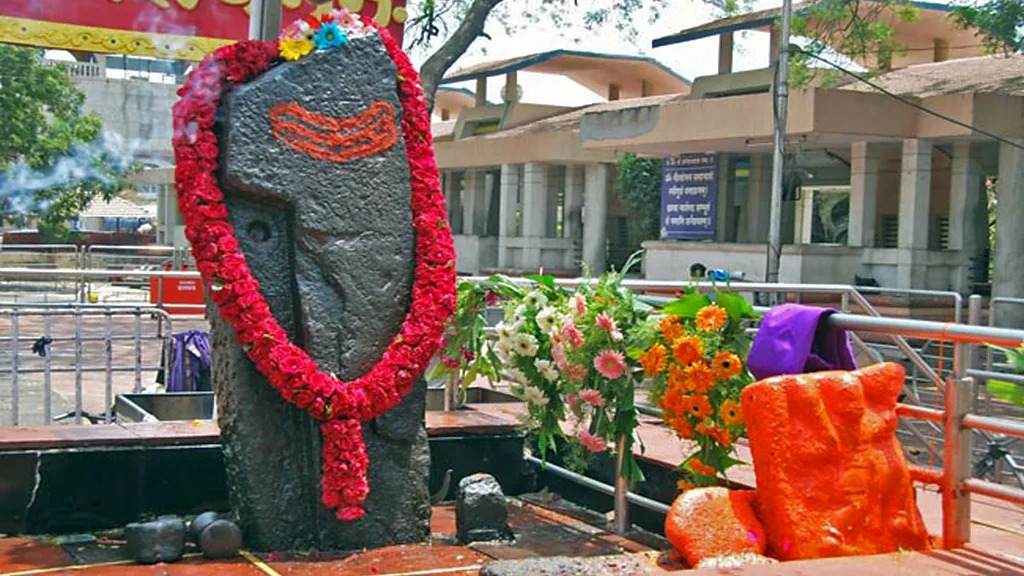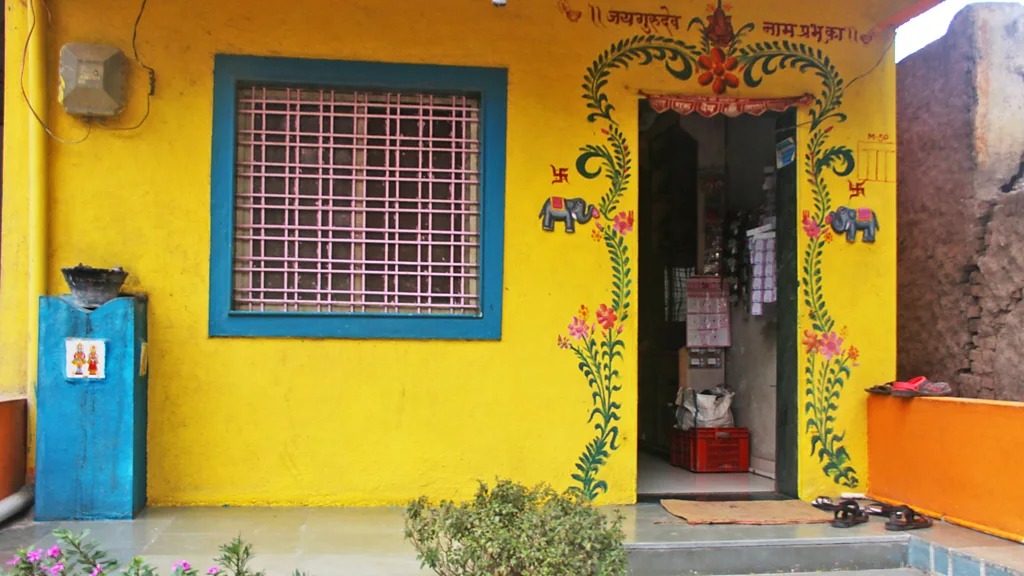In the village of Shani Shingnapur, Maharashtra, India, residents place absolute faith in one another and their deity. Homes lack front doors, shops remain open, yet locals feel secure. They have no need for cameras or security measures, believing they are under the protection of Lord Shani, the god of Saturn and the village's guardian.
Legend says that about 300 years ago, after a heavy downpour and flood, a 1.5m black stone slab washed up on the banks of the Panasnala River, which flows through the village. When villagers touched it with a stick, blood began to ooze from it.
 |
The sacred stone of Shani Shingnapur. Photo: BBC |
The sacred stone of Shani Shingnapur. Photo: BBC
That night, Lord Shani appeared in the village chief's dream, revealing the slab as his idol. The deity decreed that the stone remain in the village, where he would reside. However, Lord Shani stipulated a condition: the stone and its power must remain uncovered, as he needed to watch over the village unimpeded. In return, he promised to protect the village from harm.
After placing the stone on an uncovered platform in the village center, the villagers decided to remove all doors and locks. They were deemed unnecessary under Lord Shani's protection.
This tradition has continued for generations. While villagers occasionally place wooden panels against door frames to deter stray dogs, homes never have permanent doors. Valuables like jewelry and money are left unsecured, with unwavering faith in their divine guardian. Even the public restrooms in the village square have only thin curtains for privacy.
 |
Children in front of a doorless house. Photo: BBC |
Children in front of a doorless house. Photo: BBC
New constructions must also adhere to this custom. The police station, opened in 9/2015, has no front door and has never received a complaint from villagers. The United Commercial Bank opened India's first "lockless" branch in Shani Shingnapur in 2011, installing a glass entrance for transparency and a discreet remote-controlled electromagnetic lock to respect the villagers’ beliefs.
Locals are so carefree that they don't even ask neighbors to watch their homes while away. They believe thieves would be instantly struck blind and any dishonest person would suffer bad luck for 7.5 years. Local lore tells of a villager who installed wooden panels at his entrance and suffered a car accident the next day.
This unique history attracts devotees from across India, with at least 40,000 visitors flocking to the Shani temple daily.
 |
A doorless house in the village. Photo: BBC |
A doorless house in the village. Photo: BBC
Despite Shani Shingnapur's centuries-long reputation for being theft-free, a visitor in 2010 reported 35,000 rupees worth of cash and belongings stolen from their car. Another theft of 70,000 rupees worth of gold jewelry was reported in 2011.
However, these incidents were dismissed by locals, claiming they occurred outside the village boundaries. Many skeptics attribute the low crime rate to the village's remote location, rather than Lord Shani's divine power.
Times are changing, and some villagers are challenging the age-old custom, seeking permission from the gram-panchayat (local self-governance body) to install doors and locks for their families' safety. Most villagers, however, hope the tradition continues and that Lord Shani will protect them for centuries to come.
Hoai Anh (BBC)












